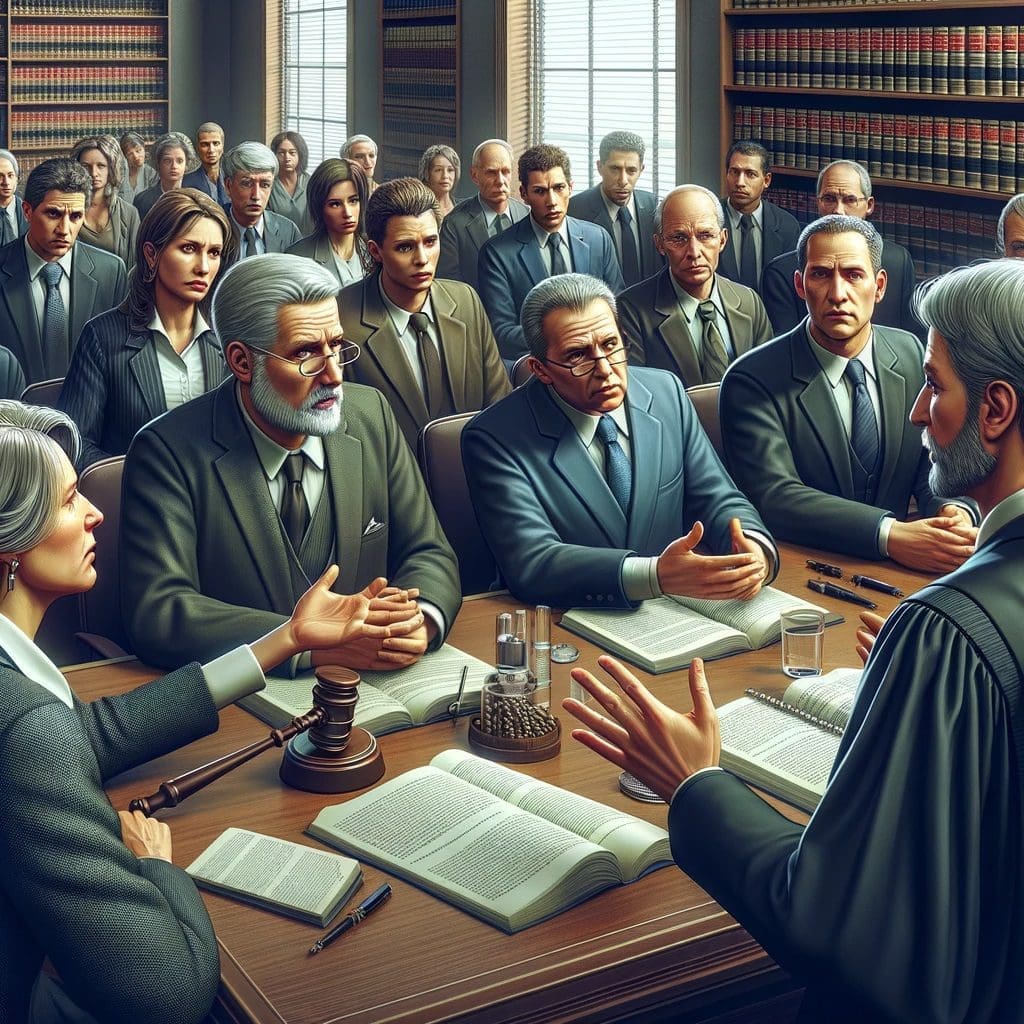Can Defense Lawyers Block Character Evidence Now?
In the realm of civil and criminal law, the consideration of ‘bad acts’ or prior wrongdoings of an individual plays a critical role in legal proceedings. The concept of ‘bad acts’ involves the admissibility of past behaviors or actions of a person that may be used as evidence in court. This evidence can be pivotal in shaping the outcome of a trial, particularly in criminal cases where character and history can influence a jury’s perception.
Understanding the Legal Framework of ‘Bad Acts’
The legal framework governing the admissibility of ‘bad acts’ is complex and varies based on jurisdiction. In the United States, Rule 404 of the Federal Rules of Evidence primarily addresses this issue. Generally, evidence of a person’s character or previous wrongdoings is not admissible to prove that the individual acted in accordance with that character during a specific incident. However, there are notable exceptions to this rule.
Exceptions to the General Rule on ‘Bad Acts’
Exceptions to the general prohibition on ‘bad acts’ evidence include situations where such information is relevant for purposes other than illustrating character. For instance, evidence of prior bad acts may be admissible to show motive, opportunity, intent, preparation, knowledge, or absence of mistake or accident. Each of these exceptions is subject to strict legal scrutiny, balancing the probative value of the evidence against potential prejudice to the defendant.
Case Studies: Application of ‘Bad Acts’ in Legal Cases
- Domestic Violence Case In a domestic violence case, evidence of prior uncharged domestic abuse incidents may be considered to establish a pattern of behavior, offering context to the charges at hand. This evidence can be critical in demonstrating the defendant’s propensity for violence in domestic settings.
- Fraud Case In cases involving fraud or deceit, prior instances of similar fraudulent activities, even if uncharged, may be admissible. Such evidence can help establish the defendant’s intent or knowledge, particularly when the defendant claims the fraudulent act was unintentional or a mistake.
Challenges in Presenting ‘Bad Acts’ Evidence
Presenting ‘bad acts’ evidence in court poses unique challenges. Defense attorneys often argue that such evidence unfairly prejudices the jury against the defendant, overshadowing the facts of the case. The legal strategy surrounding ‘bad acts’ evidence requires careful consideration, ensuring that it aligns with the rules of evidence and the specific circumstances of the case.
Ethical Considerations in Using ‘Bad Acts’ Evidence
The use of ‘bad acts’ evidence in legal proceedings raises important ethical considerations. One of the primary concerns is the potential for unfair prejudice against the defendant. Defense attorneys often argue that presenting past wrongdoings, especially those not resulting in convictions, can lead jurors to make decisions based on emotion rather than facts pertinent to the case at hand. Ethically, it is vital to balance the probative value of such evidence against its potential to unfairly sway the jury.
Landmark Cases Involving ‘Bad Acts’ Evidence
Several landmark cases have shaped the legal understanding and application of ‘bad acts’ evidence. One notable example is the case of Huddleston v. United States (1988), where the Supreme Court held that the trial court need not find that the government has proved the “other act” under Rule 404(b) beyond a reasonable doubt. This case set a precedent for the standard of admissibility of ‘bad acts’ evidence.
Another significant case is Old Chief v. United States (1997), which addressed the issue of a defendant’s prior conviction being used as evidence. The Supreme Court ruled that a defendant’s offer to stipulate to a prior conviction should be accepted to avoid the risk of unfair prejudice.
Evolving Legal Standards in Different Jurisdictions
The standards and rules governing the admissibility of ‘bad acts’ evidence continue to evolve across different jurisdictions. While the Federal Rules of Evidence provide a general framework, state courts may have additional rules or interpretations. For instance, some states have enacted “rape shield” laws, which limit the admissibility of evidence about a victim’s sexual history in sexual assault cases, a form of ‘bad acts’ evidence concerning the victim rather than the defendant.
Moreover, jurisdictions vary in their approach to balancing the probative value of ‘bad acts’ evidence against its prejudicial effect. This variation often leads to differing legal strategies and considerations in preparing for trials involving such evidence.
Conclusion
The inclusion of ‘bad acts’ evidence in legal proceedings remains a topic of ongoing legal debate and ethical scrutiny. Understanding the nuances of this evidence, its impact on trials, and the evolving legal standards is crucial for legal practitioners. As case law continues to develop and jurisdictions refine their rules, the legal community must remain vigilant in ensuring that the use of ‘bad acts’ evidence aligns with both the letter and the spirit of the law, upholding the principles of fairness and justice.
- Rule 404. Character Evidence; Other Crimes, Wrongs, or Acts – Cornell LII
- Understanding 404(b): Prior Bad Acts Evidence Rule – Lexipol
- EVIDENCE OF CHARACTER IN CIVIL AND CRIM (PDF)
- When Prior Bad Acts Are Probative (PDF)
- Rule 404(b): Evidence of Other Crimes, Wrongs, or Acts (PDF) – NC Pro Benchbook
- Admissibility of Prior Bad Acts (PDF) – Pepperdine Law
- When Are Prior Uncharged Bad Acts Admissible in Court?
- Reverse 404(B) Evidence: Exploring Standards When Defendants Introduce Prior Acts (PDF)














